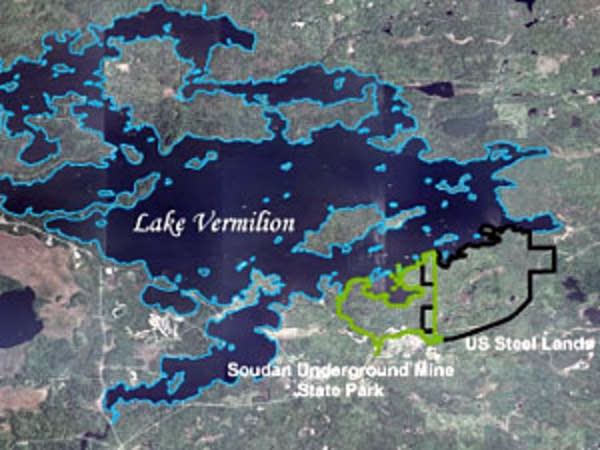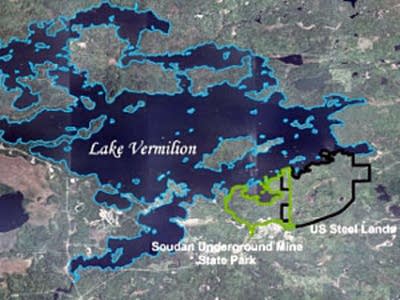Budget problems could doom plans for new state park
Go Deeper.
Create an account or log in to save stories.
Like this?
Thanks for liking this story! We have added it to a list of your favorite stories.

(AP) - Efforts to create a state park at Lake Vermilion in northern Minnesota face more hurdles amid a sagging economic forecast and differing opinions about how the state should purchase the land.
The park is included in the Senate's version of the bonding bill, but the state would allocate only $100,000 toward the park under the plan. The preliminary House version of the bonding bill included $17.5 million for the park purchase.
Many predict the size of the bonding bill will shrink now that officials have projected a $935 million budget deficit.
The state has about three months to provide money toward purchasing the park. If it doesn't, the land could become a high-end housing development.
Turn Up Your Support
MPR News helps you turn down the noise and build shared understanding. Turn up your support for this public resource and keep trusted journalism accessible to all.
"I've got a marker in the bonding bill for the park and, hopefully, the governor will get engaged here and come up with a creative way to fund it," said Sen. Tom Bakk, DFL-Cook.
Pawlenty spokesman Brian McClung said the governor still believes Minnesota should take advantage of the opportunity to create a new park.
"I won't try to stop it. But I can guarantee you that it will never happen."
"The time available to ensure success on this project is short, and we'll need the Legislature and community members to work with us to make this vision a reality," McClung said in a written statement.
The governor has proposed buying 3,000 acres, using money from the Environmental Trust Fund so that the general fund isn't further strained.
Bakk said he supports the idea, which would use the fund to pay park bonds instead of designating a large chunk in the bonding bill toward purchasing park land. The Environmental Trust Fund comes in part from the state's lottery profits each year.
But the state's Legislative-Citizens Commission on Minnesota Resources, which oversees the Environmental Trust Fund, opposes using the fund for the land purchase.
Even before the state moves to purchase the land, it must come to an agreement with U.S. Steel, which owns part of the property on the lake near Tower, said Courtland Nelson, director of state parks for the Minnesota Department of Natural Resources.
"We don't have a deal yet with U.S. Steel, and we need that first, before we put any amount in a bonding package," Nelson said. "This is a multinational company, and things don't move fast."
Nelson predicted the entire plan would likely die if not sealed within a couple weeks, given that U.S. Steel has given Pawlenty until June to submit a state purchase plan. The current legislative session is set to adjourn by May.
U.S. Steel initially asked for $45 million, and some Iron Range lawmakers said it's too much.
"I think we can see that ($45 million) come down some. There are things that U.S. Steel wants, pertaining to state tax policy, that might encourage them to deal some," said Bakk, who is chairman of the Senate Tax Committee.
Given the economic difficulties and approaching deadline, some local officials said they're skeptical a Lake Vermilion State Park will materialize.
"I hope it does. I won't try to stop it," said Mike Forsman, chairman of the St. Louis County Board. "But I can guarantee you that it will never happen. Even if the state somehow finds the money to buy the land ... they will never have enough to actually develop the park."
Bakk agreed that if the state can purchase the land, it must also appropriate money for campsites and facilities.
"Otherwise I'll be back here (at the Legislature) every year begging for a picnic table or a fire pit," Bakk said.
(Copyright 2008 by The Associated Press. All Rights Reserved.)
Dear reader,
The trustworthy and factual news you find here at MPR News relies on the generosity of readers like you.
Your donation ensures that our journalism remains available to all, connecting communities and facilitating better conversations for everyone.
Will you make a gift today to help keep this trusted new source accessible to all?




